Retro Replay Review
Gameplay
Black Panther delivers a pure, timing-based fighting experience in the vein of Way of the Exploding Fist and International Karate. At its core, the game revolves around mastering an eight-directional joystick combined with short or long button presses to trigger a variety of attacks—everything from straightforward jabs and roundhouse kicks to acrobatic back-flips and forward rolls. This input scheme rewards precision and encourages players to experiment with range and recovery frames for each move.
(HEY YOU!! We hope you enjoy! We try not to run ads. So basically, this is a very expensive hobby running this site. Please consider joining us for updates, forums, and more. Network w/ us to make some cash or friends while retro gaming, and you can win some free retro games for posting. Okay, carry on 👍)
The attack system is notably deep for its era: you can target high, middle or low, forcing opponents to think quickly about blocking or evading. A well-timed backward joystick press blocks high and middle strikes, while quick ducks and jumps allow you to slip under or soar over incoming attacks. Learning your character’s ideal engagement distance becomes crucial—whether you’re chaining a jab into a roundhouse or closing in for a jumping kick, spacing and timing make every hit count.
Bout pacing is brisk, but the invisible round timer adds a layer of strategic tension. If neither combatant is defeated when time expires, victory goes to whoever has dealt the most damage. This encourages aggressive play without going overboard; defensive players who rack up incremental hits can still outlast an opponent’s all-out offense. Before each match, you can also tailor the number of rounds to suit your session length and pick from several background graphics, keeping each fight visually fresh.
Graphics
Visually, Black Panther embraces the retro charm of early ’80s home computer fighting games. Character sprites are modest in size but well-animated, with each punch, kick and flip exhibiting smooth transitions that belie the hardware limitations of the time. Move animations are clear and readable, helping players anticipate their opponent’s next action.
The selectable backgrounds add welcome variety: you might battle atop a city rooftop, in a temple courtyard or against a neon-lit dojo backdrop. Though each stage is composed of simple, tiled textures and a limited color palette, careful use of shading and parallax scrolling gives a satisfying sense of depth. Background elements remain unobtrusive, ensuring fighters always stay in sharp focus.
While there’s occasional sprite flicker when both combatants trade rapid attacks, it rarely interferes with gameplay. Sound effects—crisp impacts, swooshes for aerial moves and a minimal but punchy soundtrack—complement the visuals without overwhelming them. For retro enthusiasts, Black Panther’s presentation captures the era’s aesthetic perfectly, balancing clarity, style and performance.
Story
Black Panther’s narrative framework is delightfully minimalist: you’re a martial artist entering a high-stakes tournament to prove your skills against a roster of diverse challengers. There’s no elaborate plot or lengthy cutscenes—just a brief character introduction screen and a simple winner-takes-all premise. This stripped-down approach keeps the focus squarely on the fights themselves.
Each opponent comes with a short, flavor-text description outlining their fighting style and motivation, lending a bit of personality to the otherwise straightforward progression. While you won’t uncover hidden betrayals or dramatic story twists, you do get a sense of journey—advancing through increasingly skilled and stylistically unique rivals until you face the final champion.
For players seeking a deep storyline, Black Panther may feel sparse. However, the lack of narrative fluff is intentional, mirroring arcade-style one-on-one fighters of its time. If you appreciate a game that cuts straight to the challenge and competitiveness of martial arts combat, this pared-down story structure keeps you locked into the action.
Overall Experience
Black Panther stands out as a tight, skill-focused fighter that rewards dedication to timing, spacing and move precision. Matches are fast-paced and demanding—every misjudged kick or blocked punch can be the difference between victory and defeat. The ability to customize rounds and backgrounds adds a touch of personalization that encourages repeated play sessions.
The game’s retro graphics and sound design capture the spirit of early one-on-one fighters without feeling too dated, and its control responsiveness remains its greatest asset. While the lack of a fleshed-out story or character progression may deter those looking for a narrative journey, the pure, unadulterated combat loop will appeal strongly to purists and fans of classic martial arts titles.
In summary, Black Panther is a nostalgically styled fighting game that shines through its mechanical depth and arcade-style simplicity. If you relish the challenge of mastering joystick-based combos and take pride in out-timing opponents, this title offers a rewarding test of skill that’s both engaging and fundamentally fair. For anyone craving a straight-ahead, old-school fighting experience, Black Panther remains a compelling choice.
 Retro Replay Retro Replay gaming reviews, news, emulation, geek stuff and more!
Retro Replay Retro Replay gaming reviews, news, emulation, geek stuff and more!
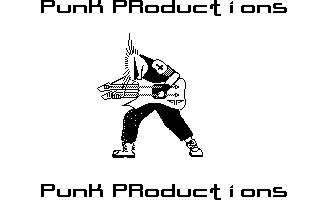
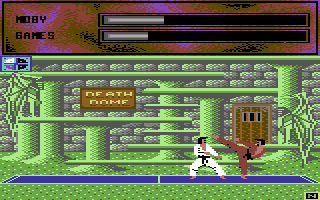
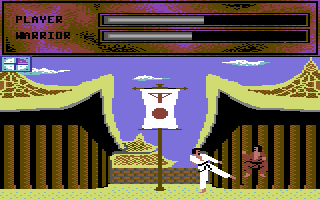
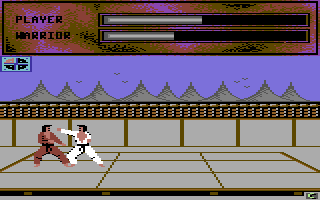
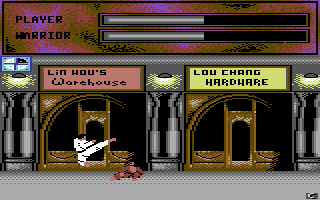

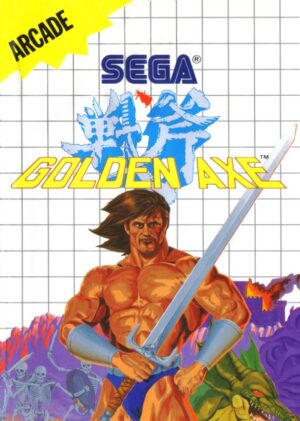
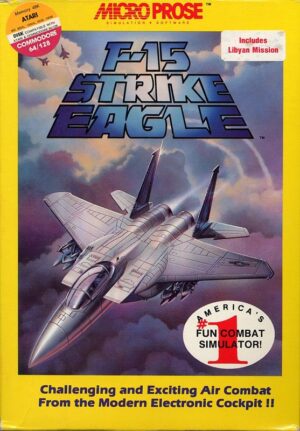
Reviews
There are no reviews yet.